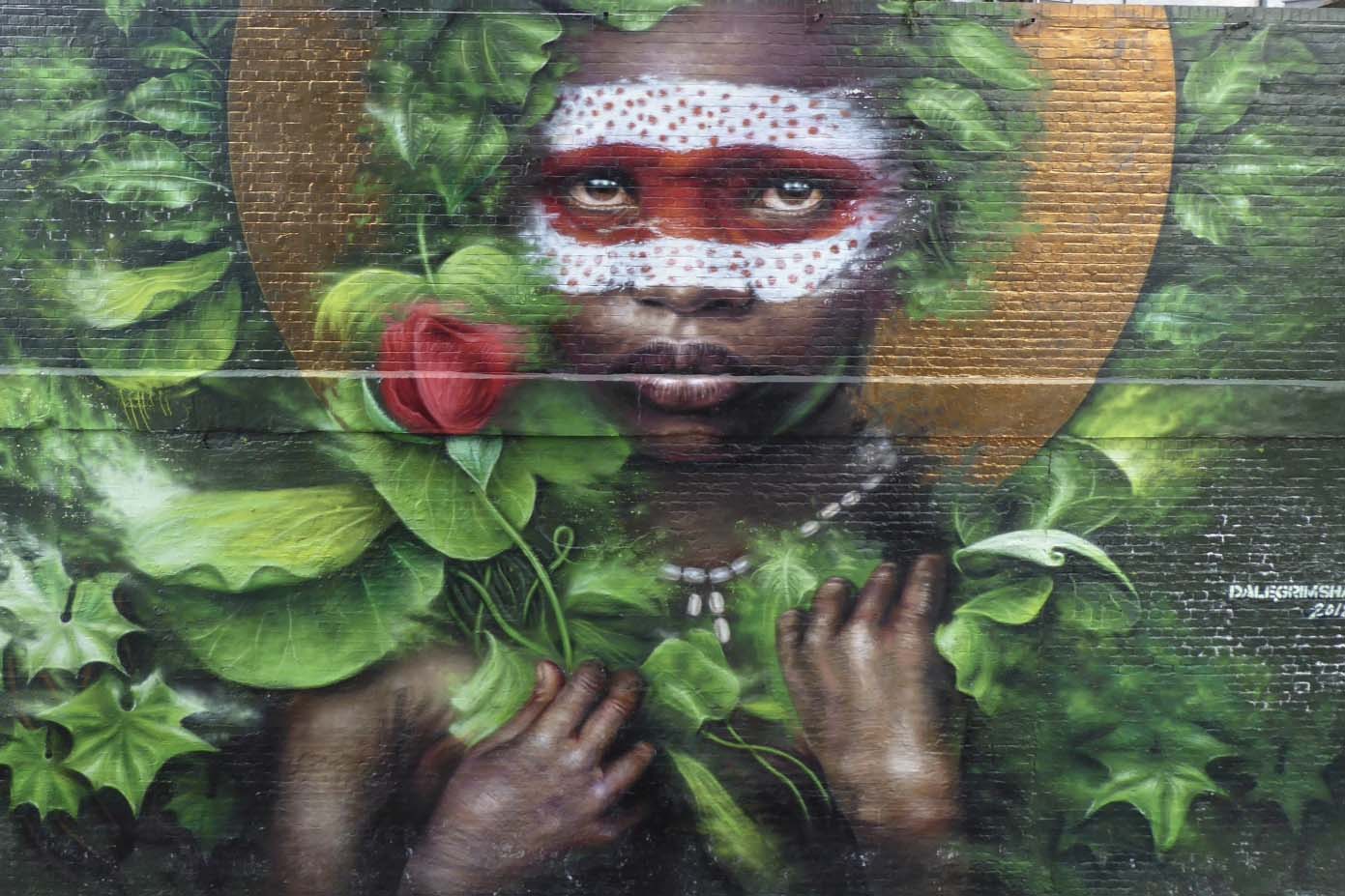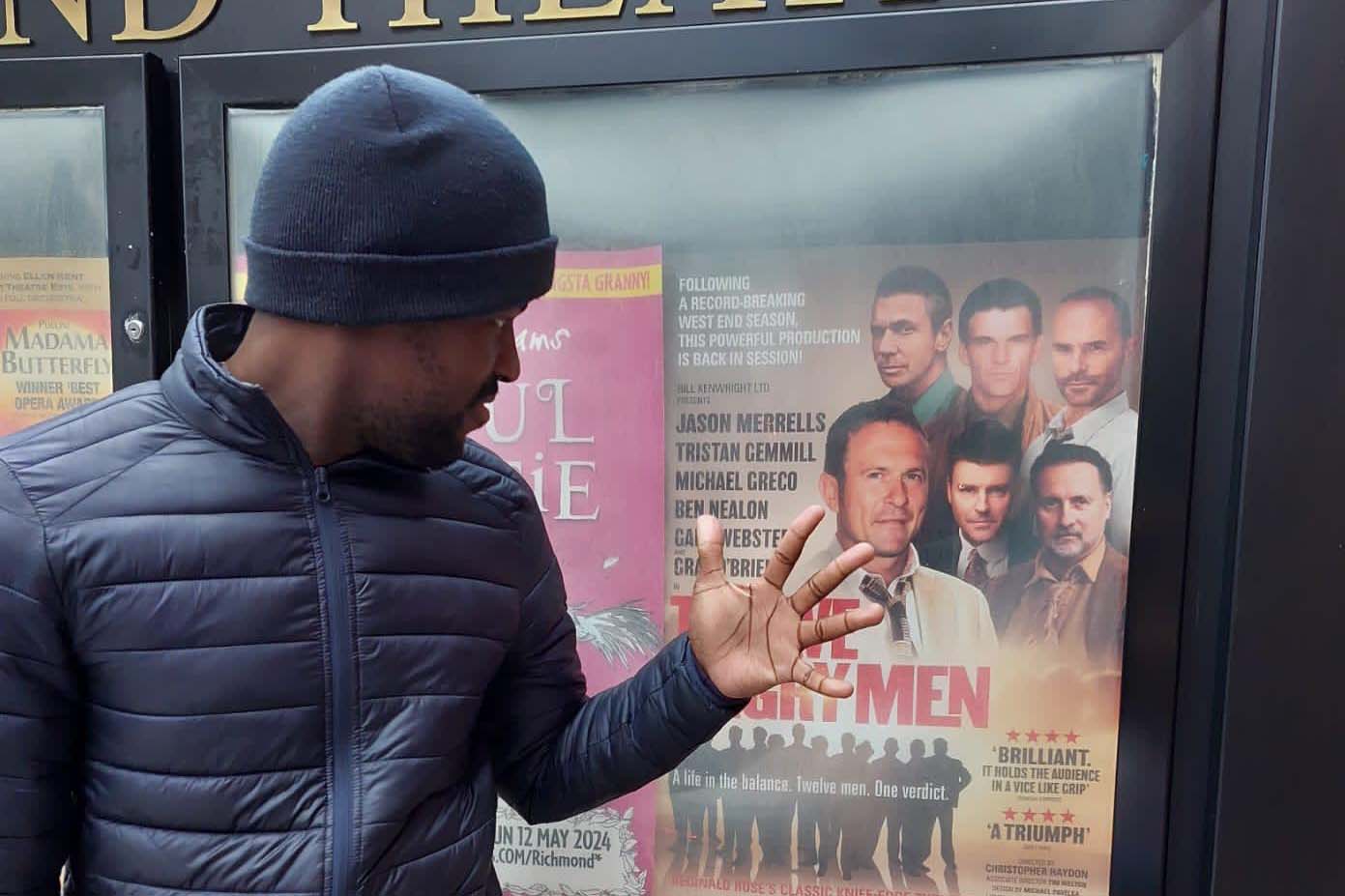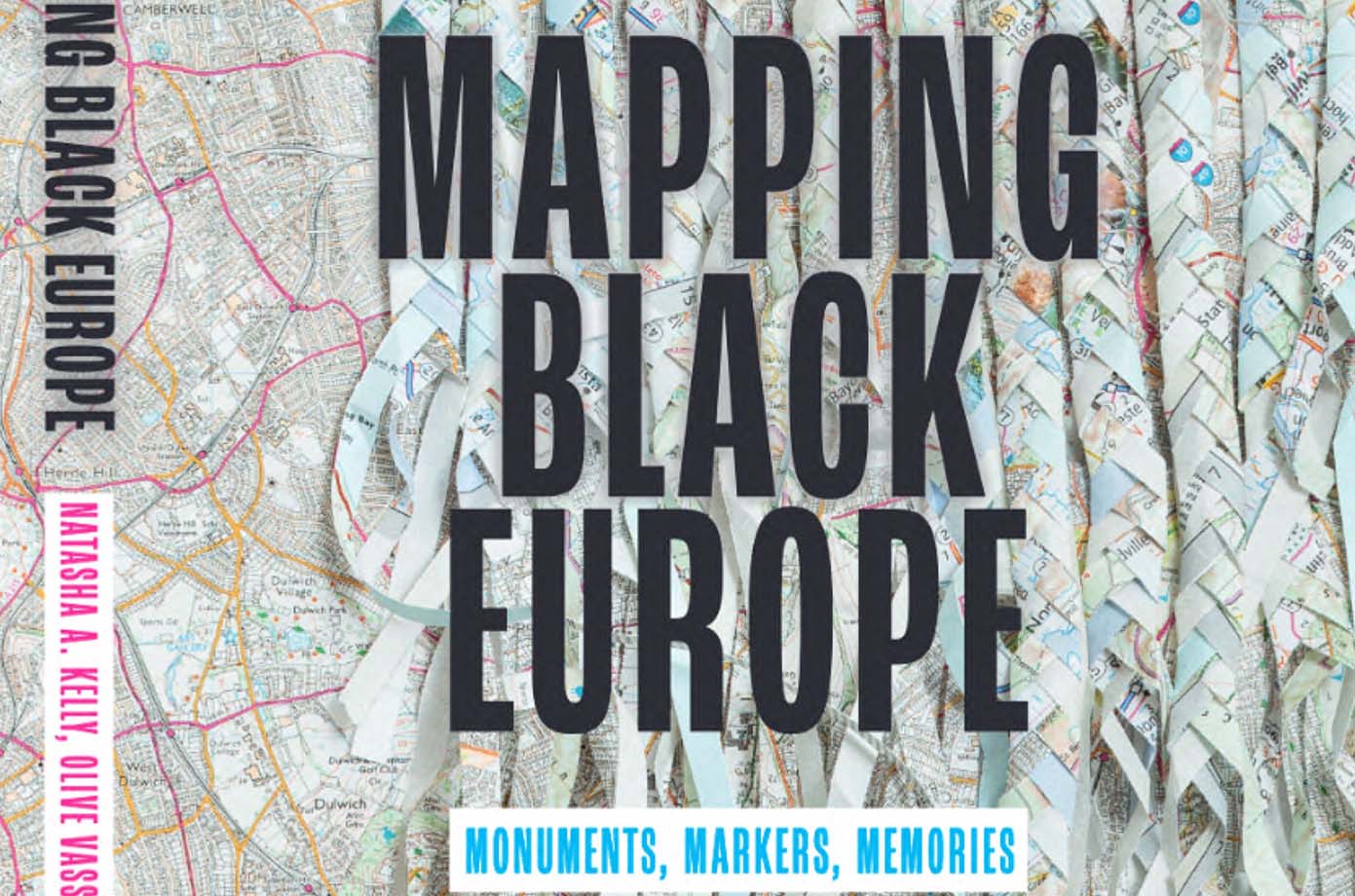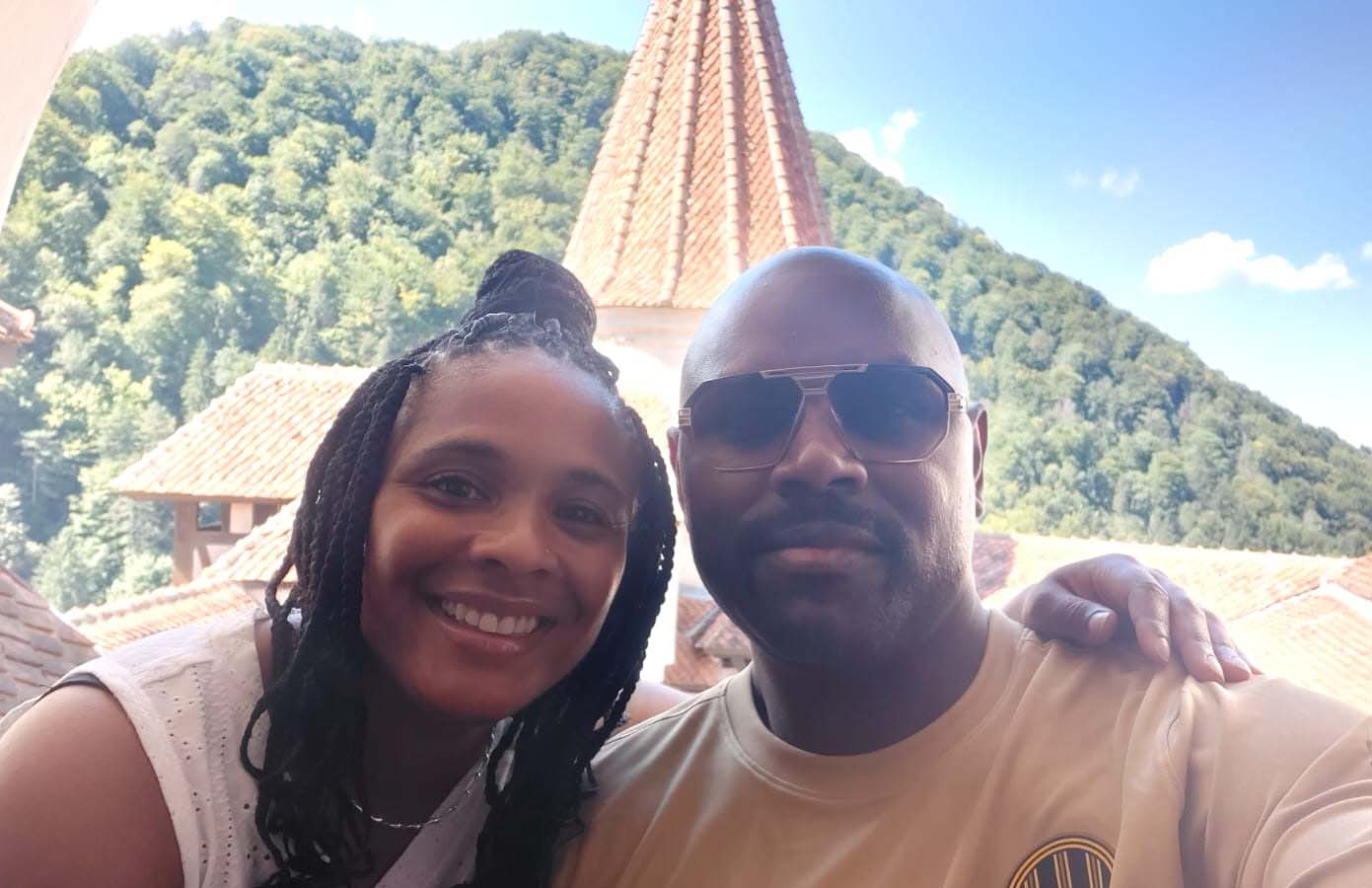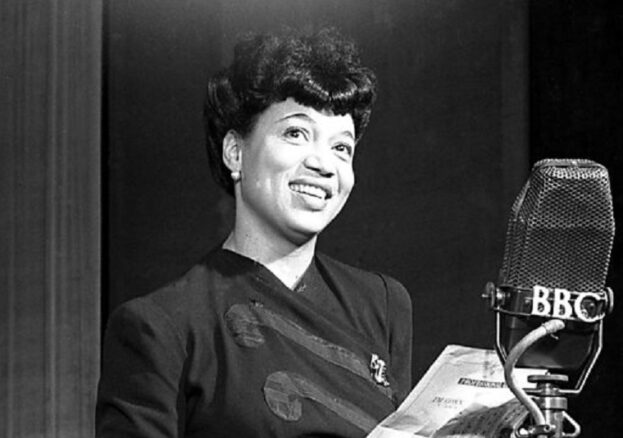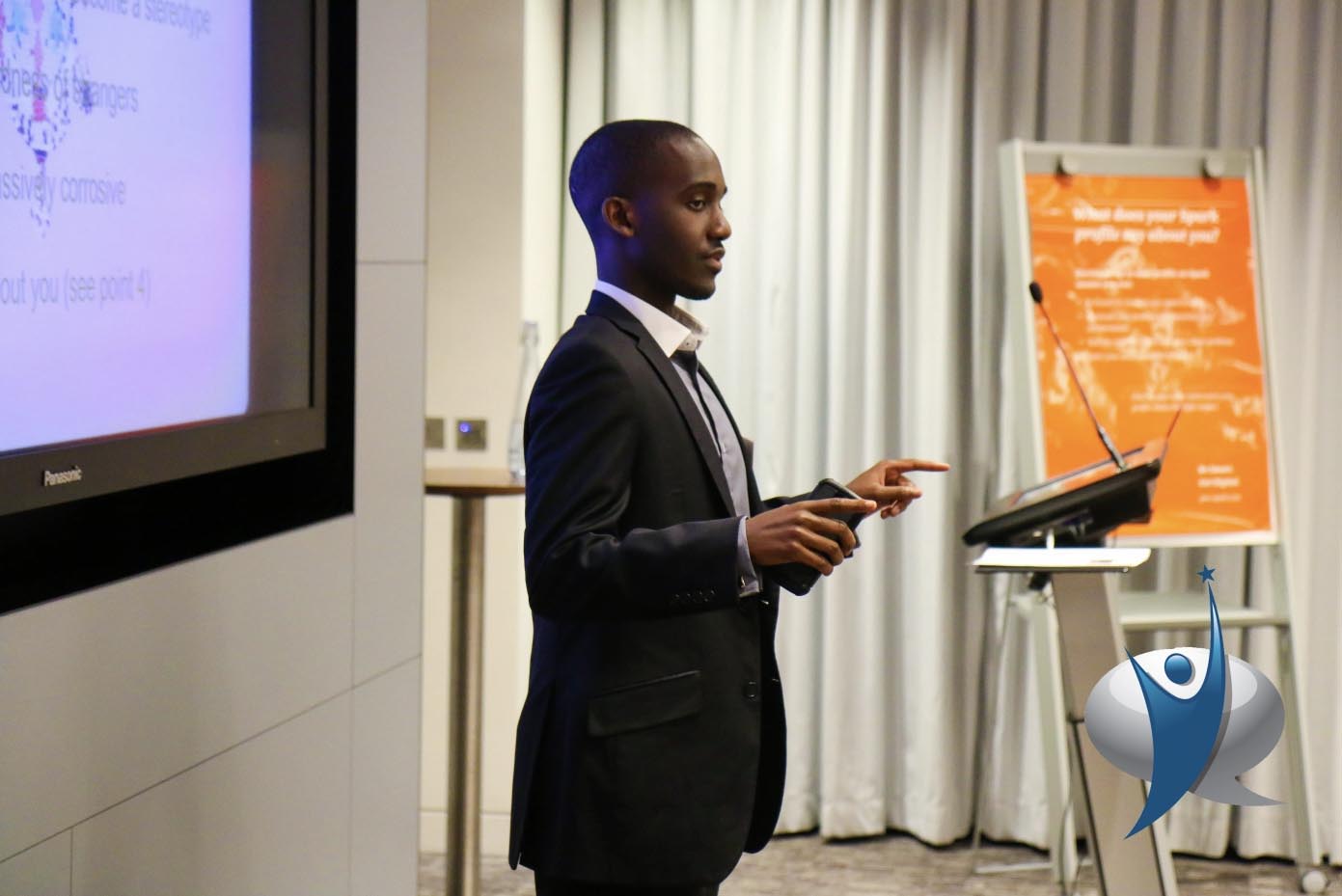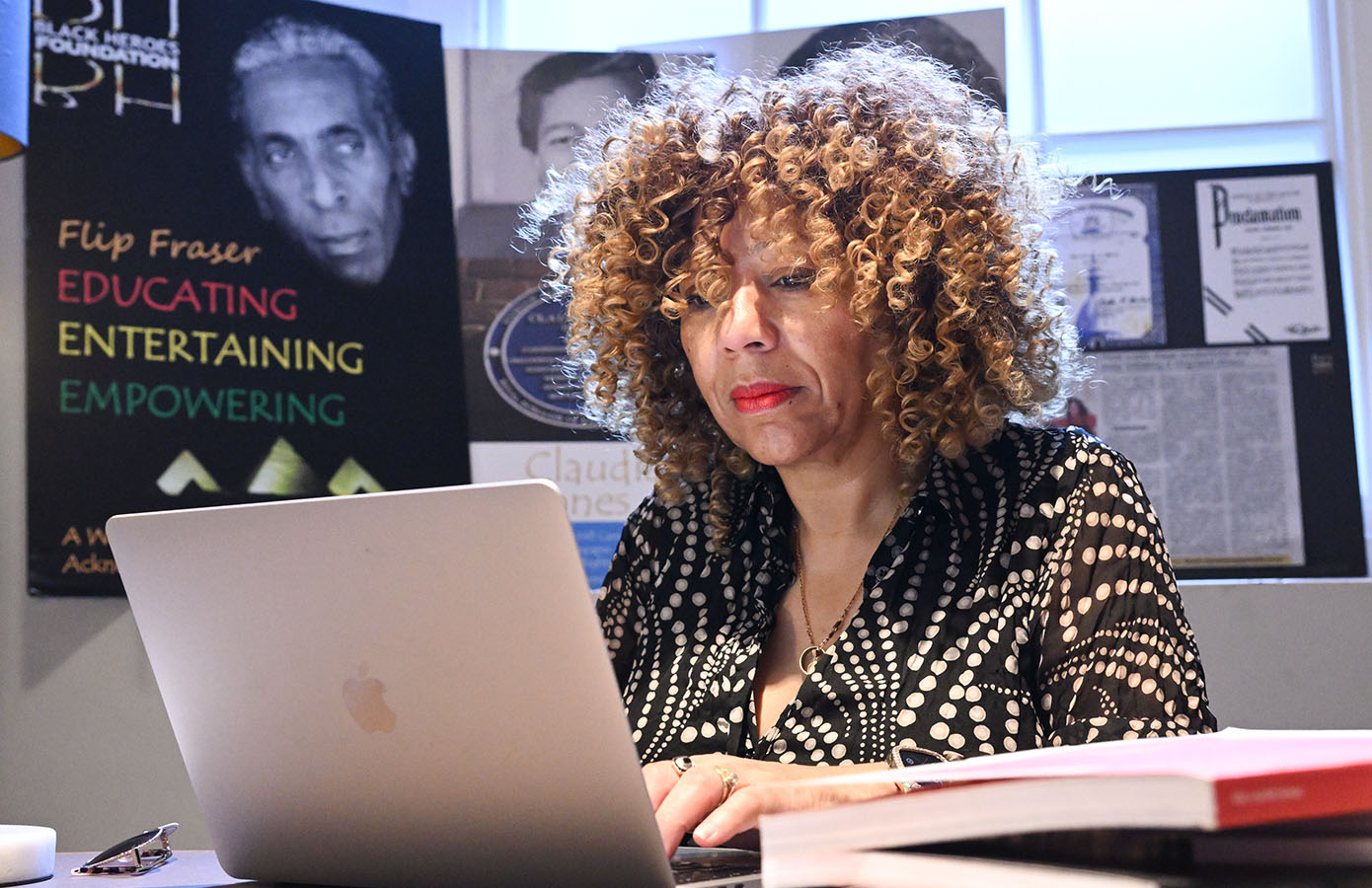
Dr. Joyce Fraser, OBE, founder of the Black Heroes Foundation. Photo: Karwai Tang.
Joyce Fraser: Celebrating Black heroes
By Olive Vassell
When Joyce Fraser launched the Black Heroes Foundation in 2016, she was fulfilling a personal mission – to continue and amplify the work her late husband, Flip Fraser, had begun years before.
The founding editor of the Voice newspaper, he had focused on elevating Black history, creating and staging a pioneering show, Black Heroes in the Hall of Fame, which chronicled Black contribution. In addition to playing at a West End Theatre, the show toured Jamaica and the US to great acclaim.
After his premature death in 2014, Joyce Fraser, who had never been involved with his work, said she began to realize its impact on people’s lives.
“He actually gave them their history back in the 1980s.… [the show]…covered 5,000 years of Black history. People just said that because of him they went to see the show and when they came out, they felt 10 feet taller.”
Joyce Fraser’s mission was further crystallized when, while going through Flip Fraser’s effects, she came across his Facebook page, the Black Heroes Foundation, with 3,000 followers.
“I decided what I would do is to actually create a charity and call it the Black Heroes Foundation in his honour and just do small things that I could do in order to carry on his legacy which is to educate, entertain and empower by telling the stories of Black heroes,” she said.
Nearly a decade in, Fraser’s vision has come to life, despite many challenges including navigating the charity world and learning how to write and produce theatrical shows.
“I had no idea about what a charity was. I had no idea about theatre and entertainment. I was a science teacher. I lectured for the Open University in their business school on business management,” Fraser explained.
Despite this lack of experience, to date, Fraser has written plays about Claudia Jones, the founder of the first West Indian Carnival in London and editor of the West Indian Gazette and John Archer, the first Black mayor in London (Battersea) in 1913. Her most personal play is the Story of Flip Fraser: A Windrush Story, which documents her husband’s life.
“It’s a play within a play. The play opens up actually with the actors in backstage rehearsal getting directed, doing whatever they do. And then it goes back and forth to his childhood, his teenage years, at the helm of the Voice newspaper and then ends back in the dressing room in Chicago. And so I suppose that’s my great homage to Flip.”
Debuting in Black History Month, 2024, Joyce Fraser said she overcame many barriers, including lack of funding and personnel issues to put it on.
“I wanted it to be a musical. It’s not quite a musical, but the play was put on on Flip’s birthday, the 25th of October at the Shaw Theatre in Euston, which is a theatre where he launched Black Heroes in the Hall of Fame, so it was really emotional. We had over 600 people come. It was phenomenal.”
Fraser remains busy with the foundation, continuing to host one of its signature events, the monthly Black Soul Cafe which celebrates Black heroes as well as doing other public outreach.
In 2024, for example, the foundation worked with fashion designer Mary Martin to hold workshops in youth centres and libraries in which participants recreated Windrush-era fashion.
“And the very first session that I held with the elders within 15 minutes someone started crying because no one had talked about it before. And in the end, we put on a fashion show at the Clapham Grand where they modeled the Windrush fashion that they’ve made. It was just wonderful.
Fraser’s work has brought accolades. In 2018, she was awarded a Point of Light award and in 2022 received an OBE. “I was on the queen’s last list and on the first one [Charles] did as king. So I’ve been blessed. It’s just been amazing what’s happened. I could never have dreamt it.”
Next up is she is planning to launch a tour of the Flip Fraser show to mark the Foundation’s 10th anniversary in 2026. Fraser said she will focus on raising the funds personally, as government funding has been limited.
“I need to find another way of us generating income. I think what I want to do is to try and earn money that I can then put back into the charity. I find it very hard sometimes, but do you know I’ve always got Flip there. I feel like I’m Flip’s vessel because I’m doing things that I would never have ever done before.”
For more information visit https://www.blackheroesfoundation.org/
See highlights of the event here.
Mia Morris: Living the history
By Olive Vassell
Black history is not a once a year, monthly celebration for cultural community activist, Mia Morris OBE FRSA. Her long standing devotion to telling the stories of the Black presence and contribution to the United Kingdom, has spurred decades long activism and made her one of the most respected voices in the nation.
Morris founded the first Black History Month website more than 20 years ago, but her activism goes back far longer. That work started with the pioneering BBC Radio show, Black Londoners, in the 1980s, she explained. Initially working as a greeter for the programme which was hosted by journalist and activist Alex Pascall from 1974-1988, Morris met Black leaders in a variety of fields, including the arts and heritage sector where she would later find her career home.
“Every single Friday for five years I went to this programme and my job, all I had to do was meet and greet people. All those different people that I’ve worked with over the years then moved on and developed and it was natural that I would develop and move on alongside but doing something slightly different.” Towards the end of the show’s run, Morris presented the weekly slot for young people on Mondays, along with the What’s On segment on the main broadcast.
Born in the UK in the late 1950s to Grenadian parents, Morris grew up in a part of Hackney which was predominantly Jewish. “Caribbean and Jewish people lived alongside each other because we all had similar experiences like the discrimination we faced coming to live and work in a place where people were weary of us,” she said.
Her business-minded parents valued intellectual exploration, encouraging their daughter and other five children to read and discuss issues and ideas.
“My entrepreneurial spirit comes from my family lineage,” she said. Morris’ father was a Saville-Row trained tailor who worked with the likes of Major Ronald Ferguson (Sarah Fergus, Duchess of York’s father) and her mother a trained hairdresser.
“My parents worked privately as a hairdresser and tailor at home. Dad used to make clothes and simply tell people who had upcoming job interviews to pay him when they got their jobs. He knew it was hard for the Black man to find work.”

